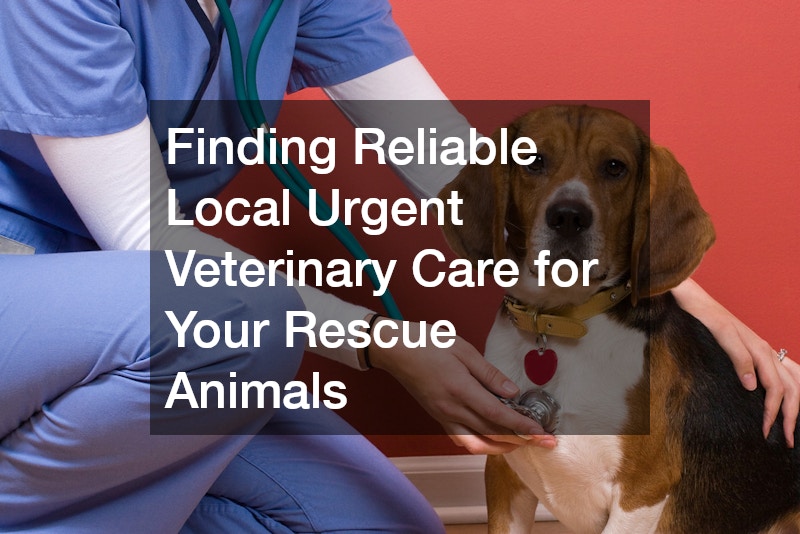Congratulations on your new rescue pet! Whether you’ve adopted a dog, cat, bird, or reptile, there are some things you’ll need to do to make sure your new pet is healthy and happy. This blog post will cover some of the basics of caring for your new pet.
1. Create a Safe, Quiet Space for Your Pet to Adjust
When you first bring your pet home, they may feel scared and confused. To help them feel more comfortable, create a safe space for them in your home where they can relax without being bothered by loud noises or too much activity. This may be a room or corner in your house that’s quiet and has few distractions. Having their own space is important because it helps reduce stress and makes the transition to their new home less overwhelming. Fill their space with some of their favorite toys and comfort items, like a soft bed or blanket. Allow them to come out and explore on their own terms, and don’t force them to interact with you or other people until they’re ready.
2. Get Your Pet Checked Out by a Veterinarian
One of the most important things you can do for your new pet is to take them to the vet for a check-up. As soon as you can, schedule an appointment with your vet. This is important to ensure your pet is healthy and to catch any potential health problems early on. It’s also a good time to ask the vet any questions you have about caring for your new pet. They can give you personalized advice based on your pet’s individual needs. In case you find out your pet does have any underlying medical conditions that need to be treated, it’s also important to get their medical records from the shelter or rescue organization.
3. Socialize Your Pet Slowly
If you’ve adopted a dog or cat, it’s important to socialize them slowly, so they don’t get overwhelmed. Start by introducing them to one person at a time, and let them approach each person on their own terms. Once they’re comfortable with people, you can start taking them on short walks or trips to the dog park (if they’re a dog). It’s also a good idea to expose them to different environments and situations, so they get used to different sights, sounds, and smells. With patience and positive reinforcement (like treats), your pet will learn to enjoy being around people and other animals. If they struggle to socialize at first, that’s okay—some pets take longer than others to warm up.

4. Be Prepared for Potty Training
Be prepared for potty training if you’ve adopted a young puppy or kitten! Puppies and kittens typically need to go potty every few hours, so it’s important to take them outside frequently or keep them in a designated potty area (like an indoor litter box). Crate training can also be helpful in teaching puppies not to go potty inside the house. Another way is to use positive reinforcement, such as treats or praise, when they go potty in the proper spot. Be patient during this process—it takes time and lots of accidents before they finally get the hang of it!
5. Know When to Seek Help
Caring for a rescue pet can be challenging at times, but it’s also very rewarding. If you ever feel like you’re struggling or don’t know how to handle a particular situation, don’t hesitate to reach out to a professional for help—whether that’s a veterinarian, animal behaviorist, or even your local animal shelter.
For instance, if your rescue dog has aggression issues, you can seek dog training from a professional dog trainer. Dogs that have come from abusive or neglectful homes may need extra help to learn to trust and bond with people. A dog trainer can help you work on building that trust and forming a strong bond with your dog. They can also teach you how to properly train and handle your dog so that you can avoid any future aggression issues.
6. Proper Nutrition Is Key
One of the most important things you can do for your pet’s health is to feed them a nutritious diet. A healthy diet is essential for all pets, but it’s especially crucial for rescue animals because they may have come from a situation where they didn’t have regular access to food or clean water.
Rescue animals may be unfamiliar with a healthy diet, but with patience and proper introduction, they will get used to it. It’s important to feed them a balanced diet that consists of high-quality protein, carbohydrates, fruits, and vegetables. You can find many commercial pet foods that meet these requirements, or you can make your own food by following recipes designed for pets. For example, you can make simple dog food by cooking chicken, rice, and vegetables.
Adopting a pet is a big decision that comes with a lot of responsibility, but it’s also enriching. By following these tips, you’ll be able to provide your new pet with everything they need to thrive and be happy in their new home.




